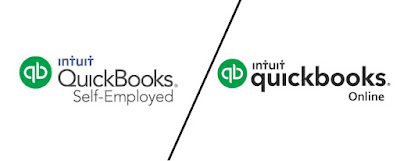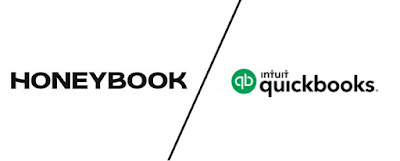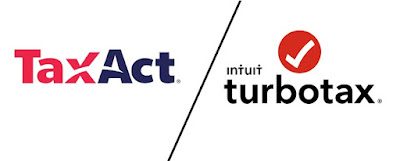Are you tired of juggling spreadsheets, receipts, and invoices? Do you find yourself dreading tax season because your financial records are a mess? Well, fret no more! In the world of personal finance management software, two heavyweights stand tall: Mint and QuickBooks. Whether you're an individual looking to streamline your budgeting or a small business owner seeking efficient bookkeeping solutions, this blog post will explore the features and benefits of Mint vs QuickBooks. So sit back, relax, and get ready to discover which platform is the perfect fit for your financial needs!
Mint vs QuickBooks comparison
When it comes to comparing Mint vs QuickBooks, there are several key factors to consider. Let's start with the user interface. Mint offers a clean and intuitive design that makes managing your personal finances a breeze. With colorful charts and graphs, you can easily track your spending, set budgets, and monitor your financial goals.
On the other hand, QuickBooks is known for its robust accounting capabilities. It caters more towards small businesses and offers features like invoicing, inventory management, payroll processing, and tax preparation tools. If you're running a business or need advanced accounting functionalities, QuickBooks might be the better choice for you.
In terms of connectivity with external accounts, both platforms support syncing with bank accounts and credit cards to automatically import transactions. However, Mint goes a step further by also integrating with investment accounts such as brokerage firms or retirement funds. This allows you to have a comprehensive view of your overall net worth in one place.
Another aspect to consider is budgeting capabilities. While both Mint and QuickBooks offer budgeting features, they differ in their approach. Mint focuses on creating personalized budgets based on your spending habits while providing alerts when you exceed certain categories. On the other hand, QuickBooks provides more detailed budgeting options tailored specifically for businesses including forecasting future revenue and expenses.
Lastly but not least important factor is pricing structure - Mint offers its services completely free of charge! Yes that's right - no hidden fees or subscriptions required! Meanwhile QuickBooks has different pricing tiers depending on your needs; ranging from basic plans suitable for self-employed individuals to more advanced packages for larger businesses.
With these points in mind regarding user interface design, connectivity, budgeting capabilities, and pricing structures, you can now make an informed decision about which platform between Mint vs QuickBooks aligns best with your financial management needs.
Features Of Mint vs QuickBooks
When it comes to managing your finances, having the right tools is crucial. Two popular options for personal and small business financial management are Mint and QuickBooks. Let's explore the features that set these two platforms apart.
Mint, a free online budgeting tool from Intuit, offers a variety of features to help you track your spending and manage your money effectively. With Mint, you can connect all of your bank accounts, credit cards, loans, and investments in one place. The platform automatically categorizes transactions and provides personalized insights into your spending habits.
On the other hand, QuickBooks is primarily designed for small businesses and offers more comprehensive accounting features. It allows you to create invoices, track expenses and income, manage inventory, generate financial reports, and even handle payroll processing.
In terms of usability and simplicity, Mint takes the lead with its user-friendly interface that makes budgeting effortless. Its colorful charts and graphs provide visual representations of your financial data for easy understanding.
QuickBooks may have a steeper learning curve due to its advanced functionalities tailored towards businesses' specific needs. However, the platform offers extensive customization options so that you can personalize it according to your business requirements.
While both platforms offer useful features for monitoring finances, Mint focuses more on personal finance management whereas QuickBooks caters specifically to businesses with its robust accounting capabilities.
Ultimately, the choice between Mint vs QuickBooks depends on whether you need basic budgeting assistance or require more advanced accounting functionalities tailored towards running a business efficiently.
Benefits of Mint vs QuickBooks
1. User-friendly Interface: One major benefit of using Mint is its user-friendly interface. It provides a simple and intuitive platform that even beginners can easily navigate. On the other hand, QuickBooks offers a more robust and feature-rich interface designed for small businesses.
2. Budgeting Made Easy: Mint excels in budgeting features, allowing users to set financial goals, track expenses, and create personalized budgets. Its automatic categorization feature accurately classifies transactions, making it easier to monitor spending habits and stay on top of your finances. QuickBooks also offers budgeting capabilities but may require more advanced knowledge to utilize effectively.
3. Comprehensive Financial Management: With QuickBooks, you get access to an extensive suite of tools for managing your business finances comprehensively. It allows you to handle invoicing, payroll management, inventory tracking, tax calculations, and more all under one roof.
4. Investment Tracking: If you have investments or stocks portfolios that need monitoring regularly, then Mint has an edge over QuickBooks in this aspect. Its investment tracking feature keeps you updated on the performance of your investments so you can make informed decisions about buying or selling.
5. Bank Account Integration: Both platforms allow integration with bank accounts; however, Mint supports a wider range of financial institutions compared to QuickBooks.
Note, Mint vs QuickBooks offer unique benefits depending on individual needs.
Mint is ideal for personal finance management while QuickBooks caters better towards small businesses.
Look closely at what features matter most to you before deciding which platform aligns best with your financial goals.
Pricing of Mint vs QuickBooks
Pricing is an important consideration when choosing between Mint vs QuickBooks for your personal or business finance needs. Both platforms offer different pricing plans to cater to a wide range of users.
Mint, owned by Intuit (the same company that developed QuickBooks), offers its services for free. That's right, you can access the basic features of Mint without spending a dime. However, it's important to note that there may be some limitations with the free version, such as ads and limited customer support.
QuickBooks, on the other hand, has multiple pricing tiers to choose from. They offer a self-employed plan starting at $7.50 per month and going up to more comprehensive plans like Simple Start ($25 per month), Essentials ($40 per month), and Plus ($70 per month). Each plan comes with varying levels of functionality and additional features.
Your decision on which platform is better for you will depend on your specific needs and budget. If you're just looking for basic financial tracking capabilities without any extra frills, Mint's free option might be sufficient. However, if you require more advanced features or are running a small business that requires invoicing or payroll management tools, QuickBooks' paid plans may be worth considering.
Remember to carefully evaluate both platforms' pricing structures before making your choice!
Which Is Better For You?
When it comes to deciding between Mint and QuickBooks, the answer ultimately depends on your specific needs and preferences. Both platforms offer a range of features and benefits that cater to different types of users.
For individuals who prioritize personal finance management, Mint may be the better choice. With its intuitive interface and user-friendly design, Mint makes it easy to track expenses, create budgets, and monitor financial goals. It provides real-time updates on account balances and sends alerts for bill payments. Additionally, Mint offers helpful insights into spending habits through personalized recommendations.
On the other hand, if you are a small business owner or freelancer looking for comprehensive accounting tools, QuickBooks might be more suitable. With its robust features such as invoicing, expense tracking, payroll management, inventory tracking, and tax preparation capabilities; QuickBooks can streamline your financial processes efficiently. It also allows collaboration with accountants or bookkeepers in real-time.
In terms of pricing plans, both Mint and QuickBooks offer free versions with limited functionalities. However, Mint's premium version is significantly cheaper than QuickBooks' paid plans which can make it an attractive option for budget-conscious individuals or small businesses just starting out.
Ultimately, the best choice between Mint vs QuickBooks depends on whether you need personal finance management or full-fledged accounting software for your individual needs or business requirements respectively. To make an informed decision, it's crucial to evaluate which features are essential to you and consider factors like ease of use, cost-effectiveness, and scalability based on your long-term goals. By carefully assessing these factors, you'll be able to determine which platform aligns best with your unique circumstances.
Conclusion
Both Mint and QuickBooks are powerful financial management tools with their own unique features and benefits.
Mint is a user-friendly personal finance app that focuses on budgeting, expense tracking, and goal setting. It offers easy-to-use interfaces, automatic categorization of transactions, and personalized insights to help individuals manage their finances effectively. With its mobile app availability and integration with various financial institutions, Mint is an excellent choice for those looking to stay organized in their personal financial lives.
On the other hand, QuickBooks is a comprehensive accounting software designed for small businesses. It provides robust features like invoicing, payroll management, inventory tracking, tax preparation tools, and more. QuickBooks also offers advanced reporting capabilities and integrates seamlessly with other business applications such as CRM systems or eCommerce platforms. For entrepreneurs or small business owners who need professional-level accounting solutions tailored to their specific needs, QuickBooks can be the ideal choice.
When it comes to pricing options, Mint stands out as it offers free access to its basic features while providing additional premium services at a reasonable cost. This makes it suitable for individuals or households on a tight budget who want to track expenses without investing in complex software.
QuickBooks has multiple pricing tiers depending on the needs of your business; starting from affordable plans for self-employed professionals up to more advanced packages for growing businesses requiring multi-user access or industry-specific functionalities.
Ultimately choosing between Mint vs QuickBooks depends on your specific requirements. If you're an individual looking for personal finance management tools with automated expense tracking capabilities plus intuitive visualizations – then Mint may be perfect for you! However if you run a small business that requires sophisticated accounting functionality including invoicing & billing workflows along with detailed reporting options - then QuickBooks might be just right!
Remember that selecting the best option largely depends on understanding what matters most: whether simplicity in managing personal finances (Mint) OR comprehensive accounting features tailored towards running successful enterprises (QuickBooks).
In the end, it's essential to assess your unique needs, evaluate the features of both platforms, and compare pricing plans to make an informed decision when deciding between Mint vs QuickBooks.




.jpg)



.jpg)


